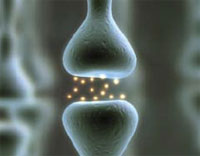Can Copper Increase Brainpower?
Recent research, at Washington University School of Medicine, has provided some intriguing insight into the role copper may play in how humans think.
The human body contains millions of neural synapses, or connections, that allow our nerves to "talk" to each other through chemical signals. Each synapse has antenna-like structures called NDMA receptors that control the strength and duration of these links. The researchers found that when a chemical signal reaches an NDMA receptor, the body reacts by releasing copper ions into the synapse to regulate the activity of the individual receptors.
How well these receptors perform their task appears to have a direct correlation on how long nerve cells live, as well as on our overall learning and memory capabilities.
"Why don't we think a hundred times better than we do?" asks primary researcher Jonathan Gitlin. "We've found that copper modulates very critical events within the central nervous system, and that influences how well we think."
Although the research is still in its infancy, scientists are excited by its potential. As they unlock the secrets of how our nervous system works, they hope to develop new treatments and therapies for those suffering from neurological disorders. Cu
Resources:
Also in this Issue:
- Tesla Electric Roadster - Powered by Copper
- Copper - An Antiaging Element
- Can Copper Increase Brainpower?
- Ultrahigh-speed Copper Ethernet Standard Approved
- Wind Power for Home Heating

 A synapse with NDMA receptors.
A synapse with NDMA receptors.